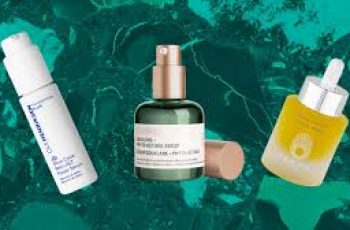
Bergamot Oil in Skin Care: A Complete Guide to Benefits, Risks, and Uses
Bergamot oil is an increasingly popular ingredient in skincare, celebrated for its unique properties.
Derived from the citrus fruit Citrus bergamia, it has been valued since the 18th century in perfumes and cosmetics. But is it right for your skin? Let’s dive deep.
What Is Bergamot?
Bergamot is a green, wrinkled citrus fruit native to the Mediterranean coast. Often called sour orange, it is likely a hybrid of lemons and bitter oranges.
This fruit’s essential oil carries a fresh, sweet aroma that makes it a favorite in perfumes, candles, and colognes.
Interestingly, bergamot oil is also the key flavor in Earl Grey tea, giving it that distinct citrusy twist.
Beyond fragrance, this oil is prized for its potential skin benefits, including anti-inflammatory and antioxidant effects.
How Is Bergamot Oil Extracted?
Bergamot oil is extracted mainly by cold pressing the peel and pulp of the fruit. This method preserves its natural compounds, including antioxidants and antimicrobial agents.
The oil is typically left unrefined to keep these active ingredients intact.
Because of its rich antioxidant content, bergamot oil has a long shelf life compared to many other essential oils. This makes it an attractive addition to various cosmetic and skincare products.
Key Benefits of Bergamot Oil for Skin
Bergamot oil is unique because, unlike many oils, it contains no lipids or fatty acids. Instead, it boasts many beneficial compounds that offer a wide range of skincare benefits:
Anti-inflammatory: It helps soothe irritated or inflamed skin.
Antioxidant: Protects skin cells from damage caused by free radicals.
Sebum Regulation: Can reduce excess oil production.
Collagen Stimulation: Supports skin’s firmness and elasticity.
Melanocyte Activation: Helps increase melanin production.
Skin Lightening and Wound Healing: Encourages skin repair and can lighten certain areas.
Studies even suggest bergamot oil might reduce blood pressure and improve mood, though these effects need more research.
Bergamot Oil and Acne
Acne-prone skin may benefit from bergamot oil. Its antimicrobial properties help fight acne-causing bacteria. Plus, it regulates sebum, which is a common culprit in acne.
Many acne cleansers include bergamot oil because it’s safer to use in rinse-off products. Applying bergamot oil leave-on treatments before sun exposure is risky due to photosensitivity.
Research on hamsters showed bergamot oil slowed the growth of sebaceous glands, suggesting it can reduce oiliness.
While bergamot helps, stronger treatments like retinoids or benzoyl peroxide are more effective for severe acne.
Aging Skin and Bergamot Oil
Aging skin loses collagen, leading to wrinkles and sagging. Bergamot oil may stimulate collagen production, helping the skin appear firmer and more youthful.
One study noted increased collagen synthesis with bergamot use.
Though it supports anti-aging, bergamot oil is not as potent as specialized anti-aging ingredients like retinol or peptides.
Still, it can be a natural addition to your skincare routine for mild anti-aging benefits.
Bergamot Oil for Psoriasis
Psoriasis causes inflamed, scaly skin patches. Bergamot oil’s anti-inflammatory properties may reduce these plaques and soothe irritation.
A review of 31 studies found bergamot oil effective against psoriasis symptoms. Since it lacks moisturizing fatty acids, it’s best paired with hydrating oils or creams to prevent dryness.
Fighting Inflammation with Bergamot
Inflammation is a root cause of many skin issues, from acne to eczema. Bergamot oil is one of the few essential oils shown to inhibit inflammatory proteins and promote wound healing.
A 2017 study found bergamot oil slowed inflammation better than most oils tested, making it a natural choice for calming irritated skin.
Bergamot Oil and Hypopigmentation
Hypopigmentation is the loss of skin color, seen in conditions like vitiligo. Bergamot oil stimulates melanocytes, the cells that produce melanin, to help restore pigmentation.
This oil is frequently used in vitiligo treatments, especially alongside UV therapy. However, it increases skin sensitivity to sunlight and must be used cautiously to avoid burns.
Important: Avoid using bergamot oil if you have dark spots or melasma, as it can worsen hyperpigmentation.
Sun Sensitivity and Risks
Bergamot oil contains psoralens, compounds that increase your skin’s sensitivity to UV rays. This makes sunburns more likely if you expose skin treated with bergamot oil to sunlight.
Many people experience dark patches or discoloration, especially on the neck or beard area, due to prolonged sun exposure combined with bergamot in perfumes or aftershaves. This reaction is called phytophotodermatitis.
Always apply bergamot-containing products in the evening or ensure they are rinsed off before sun exposure to avoid these risks.
Using Bergamot Oil for Vitiligo
Vitiligo causes white patches of skin due to loss of pigment. Treatment often involves stimulating pigment production and controlled UV exposure.
Bergamot oil has been used for decades to support pigment restoration in vitiligo patients because it increases melanin synthesis when combined with UVA light.
Due to its sun-sensitizing effect, vitiligo treatment with bergamot oil should be supervised by a dermatologist to avoid burns or unwanted pigmentation changes.
Bergamot Oil for Wound Healing
Certain compounds in bergamot oil promote wound healing. These include limonene, linalyl acetate, and linalool, all of which exhibit antimicrobial and skin-repairing properties.
Wounds treated with bergamot oil may heal faster, and the oil can reduce inflammation and prevent infection.
Side Effects and Safety
Despite its many benefits, bergamot oil is a common skin allergen and irritant for some people. Always patch test before use.
Sun sensitivity is the biggest risk. Using bergamot oil on skin exposed to sunlight increases the risk of sunburn and long-term skin damage.
Avoid bergamot oil if you have melasma or other hyperpigmentation disorders, as it can worsen discoloration.
The Environmental Working Group (EWG) rates bergamot oil between 3-5, reflecting some safety concerns depending on usage and individual sensitivity.
A 2022 study confirmed that bergamot, combined with other citrus oils, is generally safe for topical use if not left on skin in the sun.
What Kind of Oil Is Bergamot?
Bergamot oil is a plant-derived essential oil, rich in terpenes. Unlike many oils, it contains no fatty acids or lipids, so it does not moisturize the skin like traditional oils.
Its main active compound is bergapten (5-methoxypsoralen), a terpene linked to anti-inflammatory and antimicrobial effects but also to increased sun sensitivity.
Other active compounds include limonene, linalool, coumarins, and waxes.
Which Products Contain Bergamot Oil?
Thanks to its versatile properties, bergamot oil is found in a wide range of skincare products, including:
Cleansers, Face oils, Retinoid serums, Vitiligo treatments, Perfumes and colognes
If you want to try bergamot oil, look for products labeled with your skin type for best results.
Final Thoughts
Bergamot oil is a potent, natural ingredient with many skincare benefits. It fights inflammation, regulates oil, supports aging skin, and helps treat pigment disorders like vitiligo.
However, it also increases sun sensitivity and may cause irritation in some users. Use it carefully, avoid sun exposure after application, and always patch test new products.
To see if bergamot oil suits your skin, try our Baumann Skin Type quiz. This helps you find products matched to your unique needs and skin concerns.
If you enjoyed this deep dive into bergamot oil, check out these other popular plant oils in skincare:
Borage Seed Oil, Coconut Oil, Evening Primrose Oil, Jojoba Oil, Licorice Extract, Rose Oil, Rosehip Oil, Tea Tree Oil


